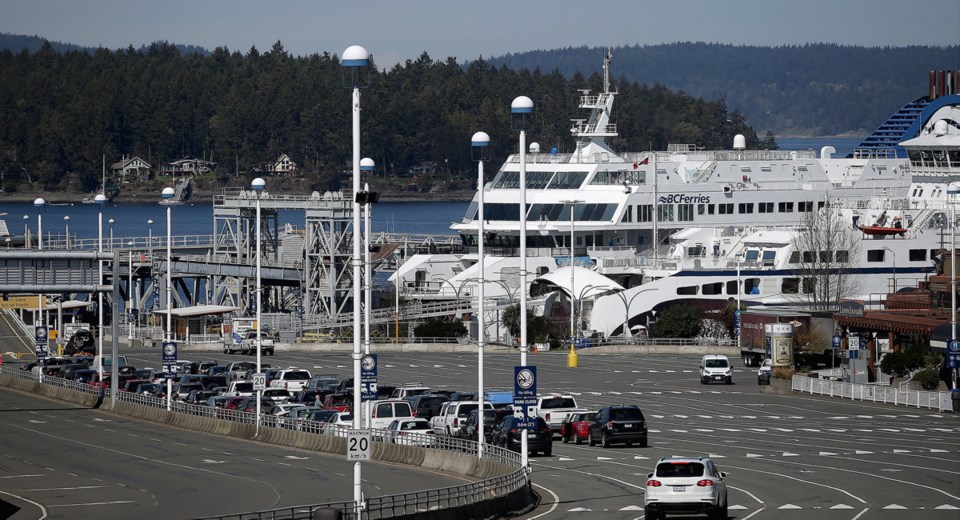We’re at the finger-pointing stage of the pandemic now. That’s the part where we demand to know why our leaders A) didn’t see this coming, or B) saw it coming but failed to react quickly or decisively enough to head it off.
It’s also the part where the social-media vigilantes take to publicly shaming people who they assume are breaking the rules. Emphasis on the word “assumed.”
We saw the latter on the long weekend, when anyone pulling up to the ferry terminal in anything other than a transport truck was automatically deemed to be a holiday-maker recklessly and selfishly undermining the efforts of those who have dutifully followed shutdown protocols for the common good.
Some social-media posts barely stopped short of calling for the ferries themselves to be torpedoed, just to be on the safe side.
Now, frequent readers will know that I am a HUGE fan of public shaming at Swartz Bay. I have a misty-eyed fondness for B.C. Ferries justice, in which the Voice of God booms out over the public-address system whenever the keen-eyed spotters in the tower catch cheaters trying to budge in line: “You in the black SUV in lane 19, go to the back of lane 32!”
Then, to the cheers and jeers of the rest of the people in the lot, the SUV does the Drive of Shame to a spot near the ticket booths, where the offender is forced to change into sackcloth and ashes as a sign of penitence.
But here’s the difference: Many of the people being scorned for travelling on the weekend (when the total number of passengers on major routes was, in fact, not even one tenth of what it was on the same weekend last year) had good reasons for doing so. Essential-services workers heading for jobs. Broke, suddenly jobless and homeless young people moving back in with mom and dad. You wouldn’t know unless you asked.
Alas, in the Age of Outrage, we’re all quick to leap to judgment without pausing to find out what’s going on in the lives, or the heads, of those on whom we would rain our condemnation. Our default setting is self-righteous indignation.
Some of that is aimed at politicians and government officials for being either asleep at the switch or slow to react to the threat of the virus back in January and the beginning of February, when they were sticking to the line that our risk from COVID-19 — a disease that wasn’t even known by that name until Feb. 11 — was low.
In hindsight, maybe they could have moved faster to suspend international flights, to close the U.S. border to tourist traffic, to banish us to our basements — but, with the coronavirus yet to take root here, what would our reaction have been?
Remember, we — and they — had a history of pandemics that never happened, of white-knuckled episodes in which we were warned that the sky was falling, only for the public’s panicked response to prove more damaging than the threat.
And after every time a far-off disease failed to materialize (particularly here in our isolated, edge-of-the-world island) we became more complacent, more confident that the next one would prove to be a dud, too.
There was 2014, when an Ebola outbreak raged across west Africa but, despite our fears, didn’t make it to Canada. In 2003, the tourism trade across the country, including here in Victoria, suffered despite the fact that year’s SARS outbreak was largely confined to Toronto.
SARS killed 44 people in Canada, just one-tenth as many as died in the H1N1 outbreak of 2009 — and even that outbreak, I was happy to report, only claimed a fraction of the 8,500 of Canadians who succumb to garden-variety flu and pneumonia every year.
“Blame human nature,” I wrote on Jan. 26. “It’s the over-the-horizon dangers that grab our attention, whereas those that are already here are ignored. Personally, I’ll overreact to any sexy menace-du-jour to come down the pike. Tsunamis, killer bees, terrorism — my propensity to panic is in inverse proportion to any actual threat.”
Today, I wish I could take that back. Sometimes it’s best to withhold judgment.



